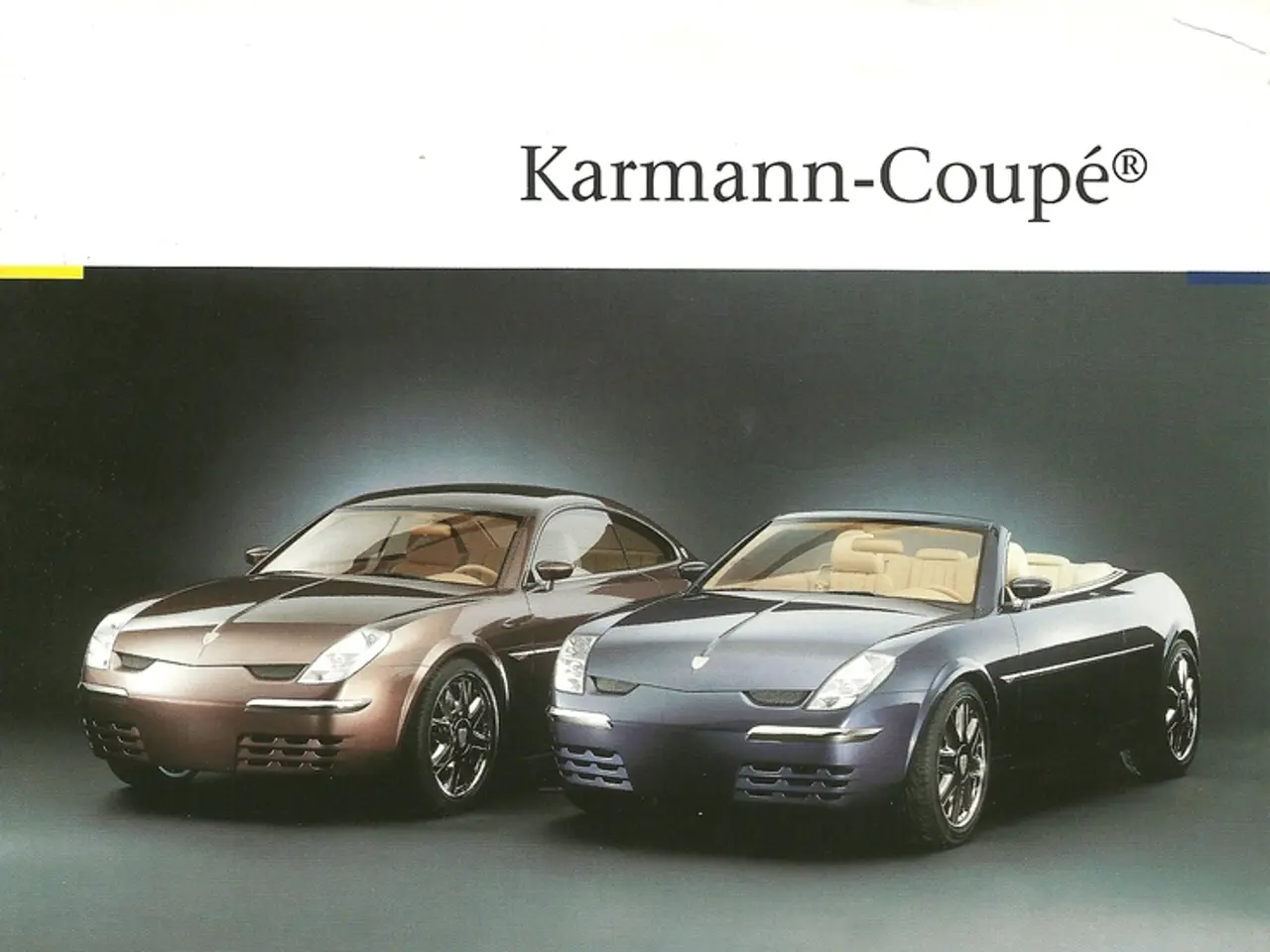Car manufacturers in Germany, including BMW and Volkswagen, face increasing pressure - Possible distribution of dividends imminent?
In the face of mounting pressures, German automakers are adapting to a rapidly changing automotive landscape. Companies like Mercedes-Benz, Volkswagen, BMW, and Porsche are grappling with punitive US tariffs, declining demand, high production costs, and intense global competition, particularly in the electric vehicle (EV) market.
The US tariff on German car imports, standing at 15%, has significantly eroded profit margins, constrained cash flow, and strained research and development budgets essential for electrification and innovation, thus hampering competitiveness in the key EV segment.
The German car market is contracting, with overall car sales falling by 2.6% year-to-date in 2025. Traditional petrol and diesel car sales have dropped sharply, although EV sales are growing steadily. Rising production costs drive up new car prices, affecting affordability and demand. Additionally, battery electric vehicles (BEVs) suffer lower residual values compared to conventional cars, impacting consumer acceptance.
German automakers are confronting fierce competition not only from emerging Chinese brands but also legacy US firms with different consumer preferences. Chinese EV manufacturer BYD, for instance, dominates significant portions of the global EV market, offering cost advantages that threaten German incumbents.
The auto sector is undergoing a profound paradigm shift towards electrification and digitalization. This forces companies like BMW and Mercedes to invest heavily in solid-state batteries and AI-driven platforms, while Volkswagen and Audi pursue restructuring including job cuts to maintain margins amid competitive pressures.
To address these challenges, German automakers are aggressively shifting towards electrification, innovating in battery technology and AI integration, restructuring operations, cutting jobs, and expanding their presence in growth markets such as China through local partnerships and investments.
Volkswagen, for example, plans a €180 billion investment in electrification through 2030, although this is threatened by tariff-related financial pressures. German automakers are pivoting towards Asia—especially China—via localized production and tech collaborations. BMW has partnered with Chinese tech firm Momenta to develop next-generation smart driving assistance technologies.
Companies like Audi and Volkswagen are undergoing restructuring with job cuts and cost management to improve efficiencies and adapt to changing market demands. Leading firms like BMW and Mercedes-Benz advance research in next-gen solid-state batteries and integrate AI into vehicle platforms to stay at the forefront of technological disruption.
German automakers are contending with regional differences in US consumer tastes, where demand for traditional trucks and status vehicles remains strong in some areas, contrasting with environmentally conscious markets.
The industry representatives call for political support for charging infrastructure, raw material supply, and European battery production. IG Metall chief Christiane Benner, for instance, is advocating for shareholders of automakers to forgo dividends during the crisis, arguing that employees should not bear the brunt of the burden alone. Benner also calls for political support, including for charging infrastructure, raw material supply, and European battery production.
In the face of these challenges, the German automotive industry sees opportunities in electric mobility. Suppliers in the German automotive industry are internationally competitive but suffer from high investment costs and low returns. Companies like Continental AG are also well-positioned, particularly with its upcoming split. The German automotive industry has a history of innovation from difficult situations. Sales and utilization rates for these companies remain below pre-crisis levels.
The German automotive industry, with its rich history of innovation, is navigating these challenges with determination. The industry's strategic responses involve heavy electrification investment, technological innovation, operational restructuring, and geographic market realignment to maintain competitiveness and ensure survival in a rapidly transforming automotive industry.
[1] BBC News [2] Statista [3] Automotive News Europe [4] The Guardian [5] Reuters
- Financial pressures, such as the US tariff on German car imports, have forced companies like Mercedes-Benz, Volkswagen, BMW, and Porsche to cut research and development budgets essential for electrification and innovation, posing challenges to their competitiveness in the electric vehicle (EV) market. (BBC News)
- In the rapidly changing automotive landscape, German automakers are exploring opportunities in transportation and finance by investing heavily in solid-state batteries, AI-driven platforms, and local partnerships and investments in growth markets, like China. (Automotive News Europe)
- The German automotive industry, strained by intense global competition and declining demand, is restructuring operations and cutting jobs to improve efficiencies, focusing on digitization and the electrification of vehicles to stay at the forefront of technological advancements in the industry. (Reuters)




